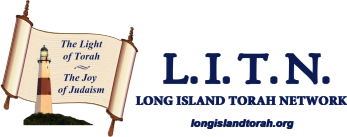Vayikra
Text:
[G-d] called to Moses, and G-d spoke to him…
[Vayikra 1:1]
Moses was the head of all the prophets, yet Scripture did not praise him for his other lofty character traits – only for the trait of humility, as it says: “And the man Moses was exceedingly humble”…. Included in his humility [was the fact that] he did not want to come to the Mishkan [unannounced. Although G-d had told Moses to come to the Mishkan and speak with Him, Moses] did not have the heart to come … until G-d gave him permission and called him, as it is written, “He called to Moses…”
[Rabbeinu Bachya]
“Any Torah scholar who lacks understanding is worse than a carcass.” Moses, father of wisdom; father of the prophets; who took the Jews out of Egypt…and went up to the lofty Heavens, and brought Torah down… and worked on making the Mishkan [still] did not enter the inner sanctum until [G-d] called him, as it is written, “G-d called to Moses… ”
[Midrash]
Question:
Rabbeinu Bachya praises Moses’ extreme humility. The fact that Moses waited until he was called – even though he knew G-d wanted to speak with him – shows how extraordinarily humble he was.
But the Midrash implies that, had Moses not waited until he was called, he would be “worse than a carcass”! That implies that we are dealing with a very basic matter of etiquette!
Which is it?
Answer:
That Moses waited until he was called shows incredible humility; this could not have been expected of any lesser individual. But it was expected of Moses. Unparalleled wisdom must lead to unparalleled refinement of character. If Moses had missed this nuance of etiquette – if his character did not “measure up” to his wisdom – he would indeed have been “worse than a carcass.”
Message:
Derech Eretz – being a “mensch” – means more than “basic etiquette.” As we acquire Torah wisdom , we also grow in Derech Eretz, attaining ever-deeper levels of sensitivity and refinement. If our character does not parallel our wisdom, we risk distorting ourselves into an ugly caricature of G-d’s most beautiful creation – the human being.
Click below to open a printable pdf
| vayikra_snapshot_and_closer_look_template_final.pdf | |
| File Size: | 911 kb |
| File Type: | |

